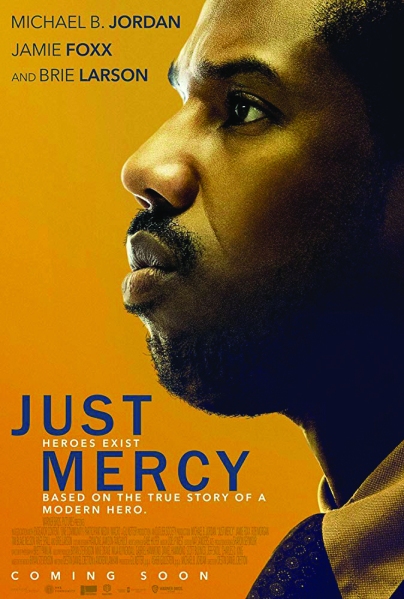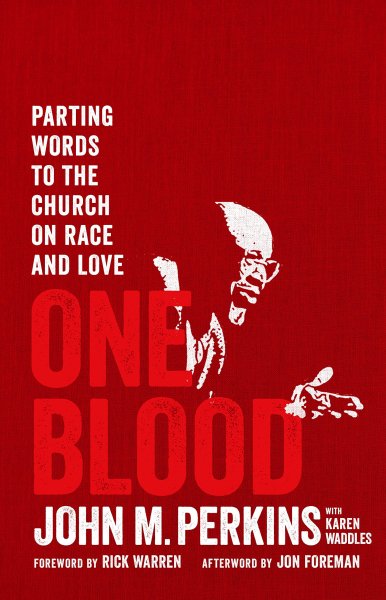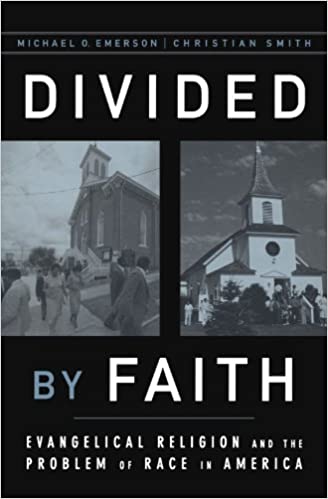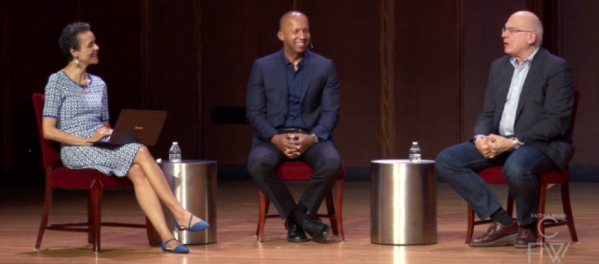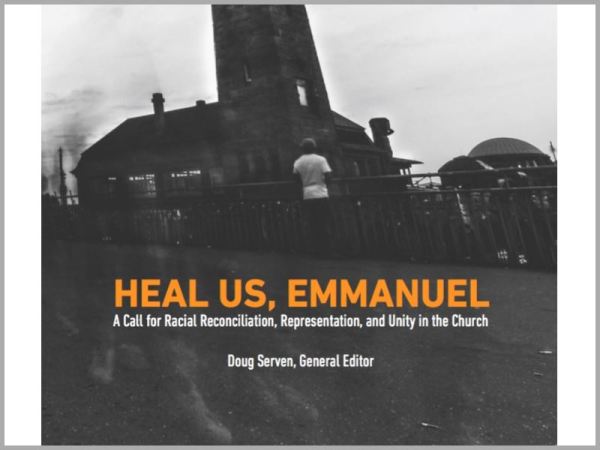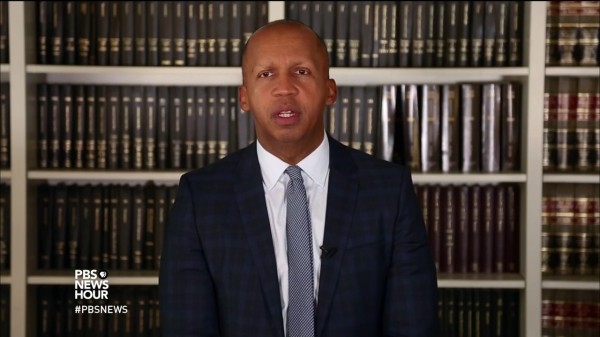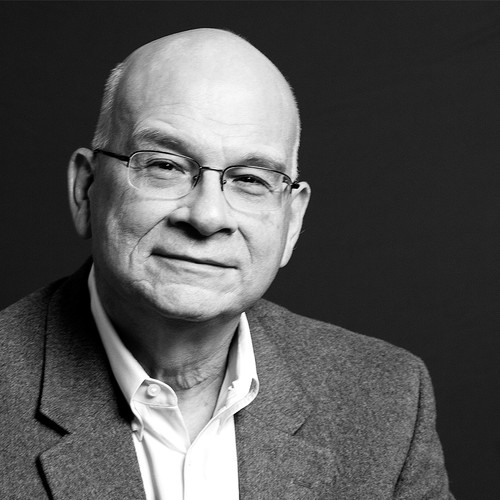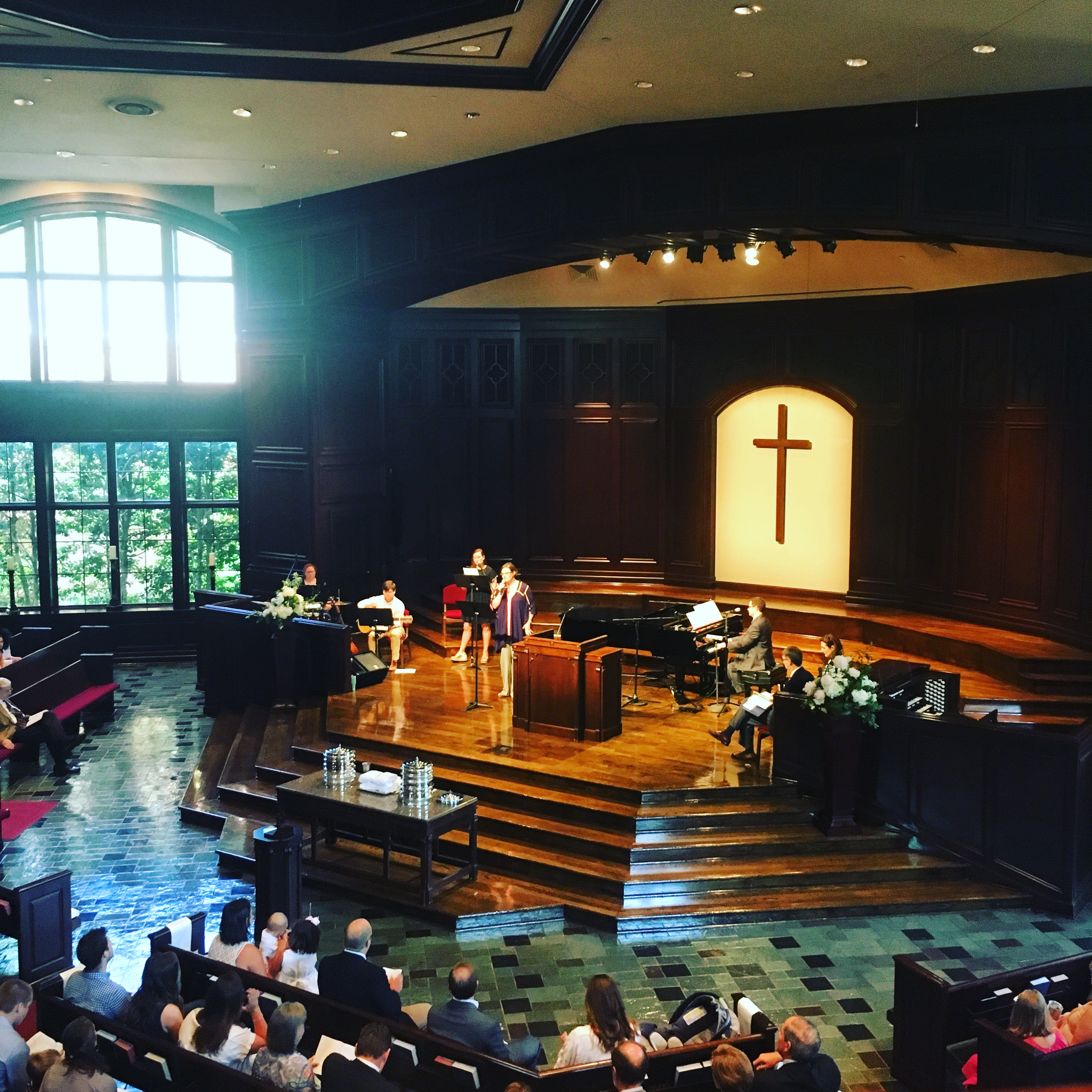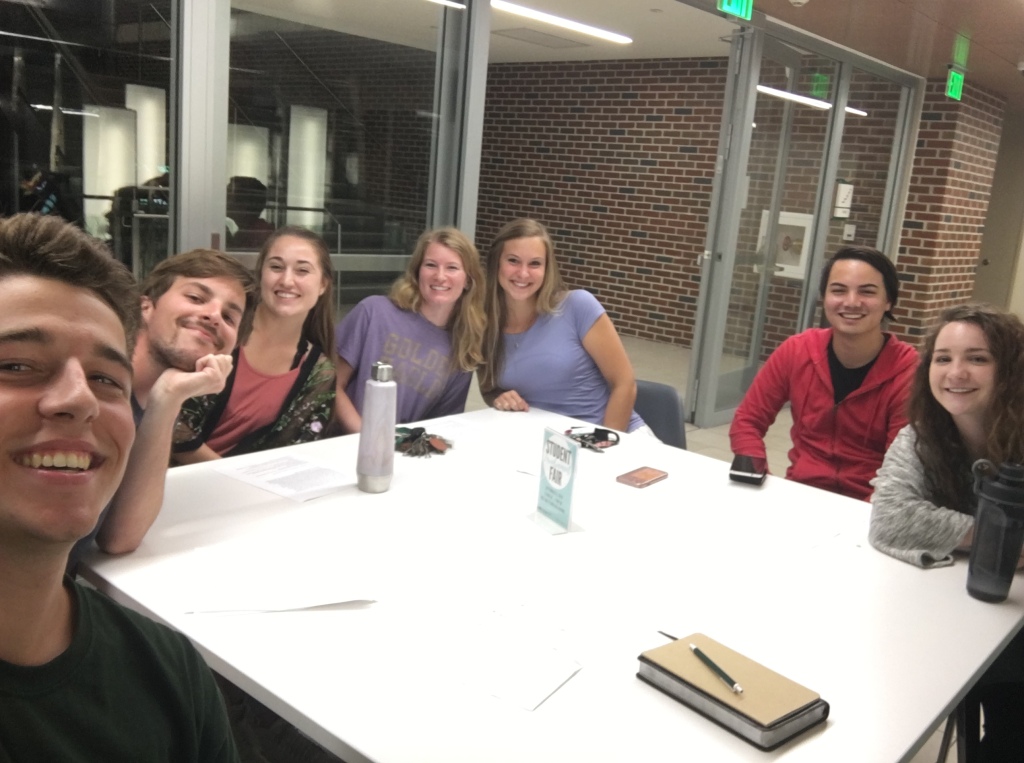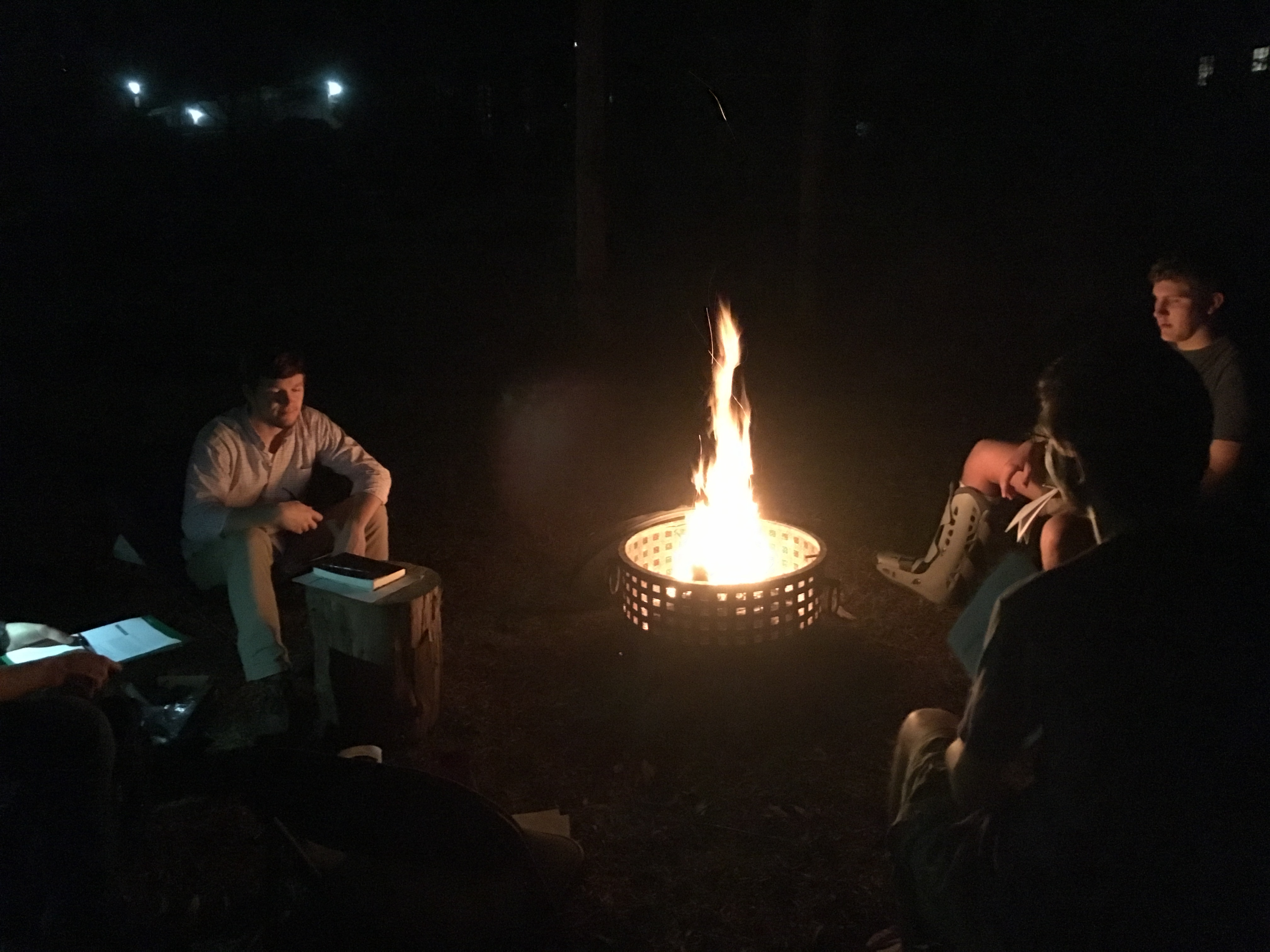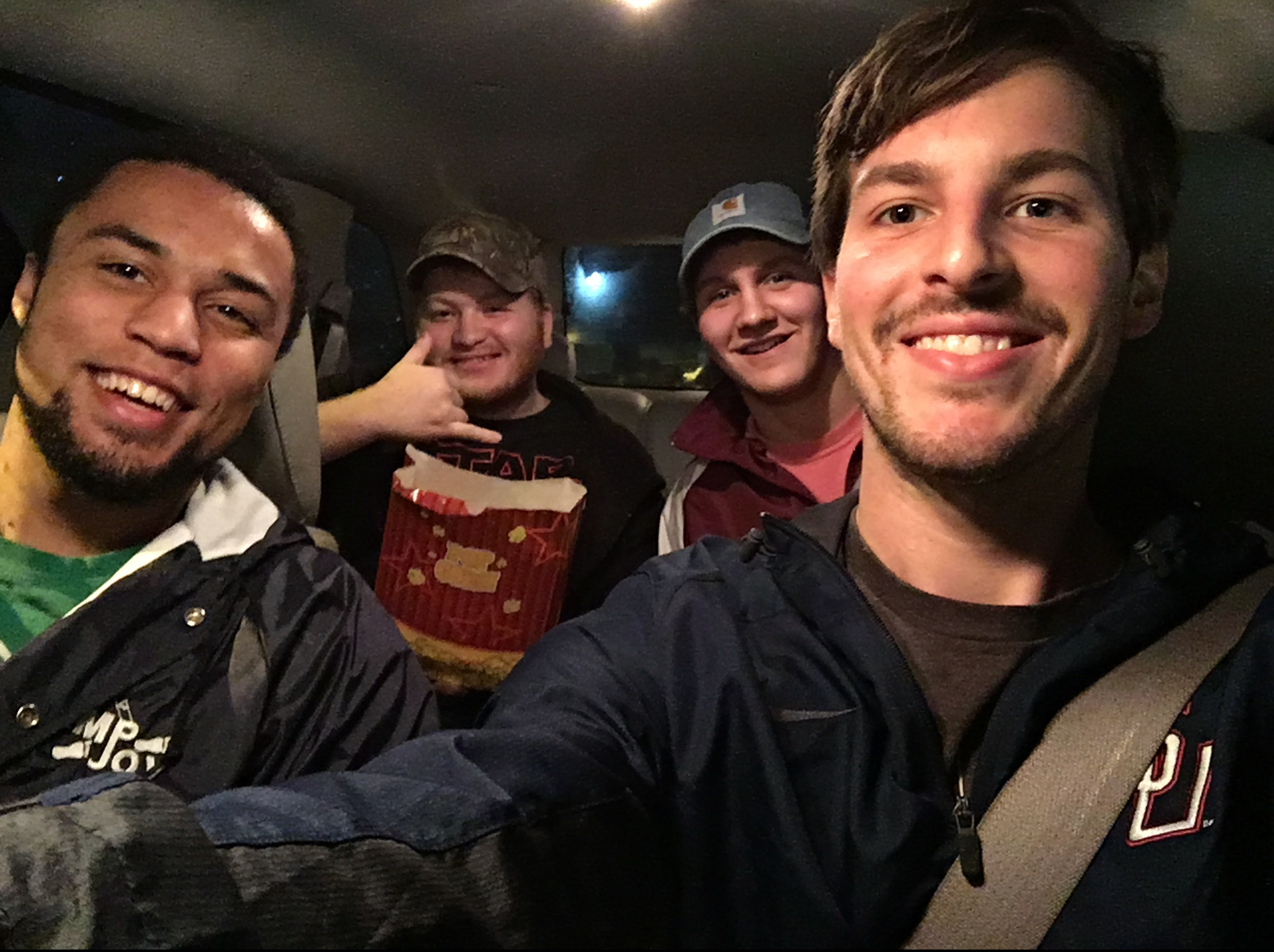
This Spring, I’m taking a course on Apologetics and C.S. Lewis at Covenant Seminary, which is very exciting because Lewis is probably the most influential Christian writer in my life. In the sixth grade, my family took me to see The Lion, The Witch, and the Wardrobe after which I read the whole series in the span of about two weeks. In high school, my youth pastor read Mere Christianity with me and my friends, and it solidified my commitment to the Christian faith. In college The Screwtape Letters and The Great Divorce helped me to grapple with the reality of spiritual warfare and spiritual decay. All this is to say, C.S. Lewis has been a wonderful companion in my spiritual growth for about fifteen years.
One of the best Lewis books I’ve read is The Four Loves, which is a series of essays about the dynamics of love and how they play out in our everyday life. In chapter 2, Lewis writes about our natural loves/affection. One of the main ideas of the chapter is how this particular kind of love becomes idolatrous. To be idolatrous, is not necessarily to make a literal shrine and worship a golden calf. It is when we give to a created thing what is owed to God – our worship, trust, unflinching loyalty, and complete devotion. In exchange, we expect from the idol what only God can give – fulfilment, the peace that surpasses understanding, perfect love, etc.
For most of the chapter, Lewis writes about how idolatrous love for created things destroys individual relationships with family or our community. But in the second half of the chapter, Lewis speaks of a phenomenon where an entire culture idolizes its national identity. Lewis calls it demonic patriotism. It was strange to see him pivot to this because C.S. Lewis clearly loves his country. He fought in the first World War and rallied to encourage his country during the second. C.S. Lewis is clearly not anti-England. Yet C.S. Lewis consistently displays a tempered love for his country in the writings I’ve read. His love for England never seemed in conflict with his love for God or God’s kingdom.
And to be clear, C.S. Lewis is not also saying that patriotism or love of country is wrong. But there is a kind or degree of patriotism that is demonic and idolatrous. It creates a web of conflicting interests and sin in and out of the church. Lewis does an excellent job of explaining this in the Four Loves, and I thought I’d share three take-aways and how they have shaped my thinking over the years. If you want to read the chapter for yourself, you can read the online edition (pages 39-49).
- Demonic Patriotism Enables Wicked Rulers and Wickedness Itself
On page 40, Lewis writes, “Demoniac patriotism will make it easier for [rulers] to act wickedly; healthy patriotism may make it harder; when [rulers] are wicked they may, by propaganda, encourage a demonic condition of our sentiments [love of country] in order to secure our acquiescence [compliance] in their wickedness. If [rulers] are good, they could do the opposite. That is one reason why we private persons should keep a wary eye on the health or disease of our own love for our country.” (my definitions inserted in brackets for clarity).
In other words, the idolatrous patriotism of citizens at the hands of an immoral leader creates an enormous opportunity for that leader to manipulate those citizens. This is one of the reasons I’ve had a hard time getting behind Make America Great Again. Trump has constantly antagonized his political rivals (including those within his own party) and has actively believed and spread conspiracy theories/propaganda for four years in the name of love for country. Subsequently many citizens who idolize their country (and Trump) believed every word and supported this behavior. Some of them showed up at our nation’s capitol with pipe bombs in the name of patriotism and for a lie that the election was stolen. It happened.
Now that behavior was very extreme and does not represent everyone who voted for Trump. What is less extreme but fairly common was the patriotism that was in favor of antagonistic rhetoric and behavior which has flooded our culture with division. I’ve watched for four years as Christians duke it out over supporting the president and justifying his behavior. In some cases it has caused Christians to forsake love for Christian brothers and neighbors. It has divided families and friends. This isn’t to say that progressives and never-Trumpers have not contributed to the division too (they have). But it is discouraging to see professing Christians, in the name of patriotism, consistently contribute to a culture of vitriol and antagonism. It is hard to see Christians refuse to be peacemakers. It is hard to see Christians mock one another and unbelievers.
Lastly, there is the antagonistic rhetoric and policies towards immigrants, refugees and even exchange students. As World Relief has pointed out, refugees fleeing violence and persecution to the United States were at an all time low as a direct result of this administration. This year, there were nearly 70’000 refugees unable to get asylum in the U.S. As someone who grew up with exchange students and is potentially pursuing college ministry with international students, this policy was exceedingly hard to swallow. I understand concerns about our own security and economy, but turning away vulnerable refugees during a horrible international health crisis and threatening to send home exchange students to put America first was exceedingly difficult to swallow.
So from where I stand, C.S. Lewis was right. If patriotism comes before love of God and his kingdom, it enables wicked rulers and wickedness itself.
- Demonic Patriotism Distorts History
In page 43-44, Lewis writes, “I think it is possible to be strengthened by the image of the past without being either deceived or puffed up. The image becomes dangerous in the precise degree to which it is mistaken, or substituted, for serious and systematic historical study . . . What does seem to me poisonous . . . is the perfectly serious indoctrination of the young in knowably false or biased history – the heroic legend drably disguised as text-book fact . . . With this creeps in the tacit assumption . . . that our own nation, in sober fact, has long been, and still is markedly superior to all others.”
Here Lewis speaks to how demonic patriotism often develops a superiority complex based on heroic national legends. Lewis is not totally throwing out myths and legends which spark our imagination as children and help us develop love of country. I still love Davy Crockett to be honest. But Lewis is condemning the tendency (knowingly or unknowingly) to present our legends as historic facts devoid of context or historic scrutiny. For example, in the south, folks tend to say and believe that the Civil War was truly about states rights, and that it was a holy and just cause (see the attached monument). Folks typically propagate this to help us appreciate our southern heritage/culture and make sense of the Civil War. The problem is that it’s incredibly ahistorical. It downplays the evil of slavery and white supremacy and it directly contradicts what the confederate leaders said and believed about defending slavery.
You might think the worst that this does is make us bad historians, but it actually does something more sinister. C.S. Lewis goes on,
“If our nation is really so much better than others it may be held to have either the duties or the rights of a superior being towards them. In the nineteenth century the English became very conscious of such duties: the ‘white man’s burden.’ What we called natives were our wards and we their self-appointed guardians . . . Our habit of talking as if England’s motives for acquiring an empire had been mainly altruistic nauseated the world. And yet this showed the sense of superiority working at its best. . . If there were no broken treaties with Redskins, no extermination of the Tasmanians, no gas-chambers and no Belsen, no Amritsar, Black and Tans or Apartheid, the pomposity. . . would be roaring farce.” – p. 45-46
In other words, this patriotic mythology downplays, ignores, or denies the ugly parts of our past and allows us to either ignore or justify atrocities. It robs us of the opportunity to heal and make amends. One of the reasons I do not think of Germany as a threat is that they don’t present the third reich as a just cause. I can’t speak for every German, but if you go to Germany, there are not monuments to Hitler or Nazi war heroes presenting them as heroic. This doesn’t mean you can’t learn the history of the second world war. There are plenty of museums and you can visit Dachau to learn about Germany’s role in WWII.
One of the reasons I believe the Bible is true is because it refuses to gloss over the sins and wrongdoings of its heroes. Israel’s most famous old Testament King, David, was an incredibly heroic figure. He also had an affair and murdered Bathsheba’s husband, Uriah. He refused to punish his son, Amnon, after Amnon raped his sister Tamar. Then when his son, Absalom, killed Amnon, David refused to deal with that and it led to a civil war. The Bible has no qualms telling us about all of it. Peter, “the rock upon which Christ would build his church,” chopped off a guy’s ear, denied his Lord three times, and refused to sit with Gentiles. God still brought him to repentance and still used him in profound ways! The Bible tells us not to trust in our own righteousness or heroism. The mythological version of our history does not. It tells us how righteous and justified our culture is.
Of course this does not mean that C.S. Lewis thinks a country’s sins are all that they are. There are great and heroic moments and people throughout American history that we should celebrate and remember. These stories help us develop love of country. But we also shouldn’t ignore or downplay the sins of the past either. When we do ignore it, it creates a significant and strong resistance to anything or anyone who contradicts our cultural narratives. This past year, I’ve observed numerous black christian leaders speak up about their stories and experience of living in America – stories of hardship and inequities that they and their community have faced. A common response from christians has often been to boldly deny, minimize, downplay, avoid, and/or ignore their experiences. Sometimes the response has been down right antagonistic and cruel. I suspect that it is because the stories of racism/discrimination towards black men and women in America contradicts the heroic American legend. It contradicts patriotism. It tells us that America is not as “holy and just” as we’ve been taught. The result is that we can’t deal with black Christians who don’t share our patriotic zeal, even when they are our brothers and sisters in Christ. Instead we avoid, excuse, and downplay their stories and then blame and vilify them.
Demonic patriotism robs us of empathy and love for brothers and sisters in Christ who do not share our mythology. These responses may not be ill-intended, but they are responses that do significant damage to our relationships. They fundamentally deny the wounds and vulnerability of others in order to preserve our legends. They fundamentally deny the dignity of people in front of us in order to preserve the dignity of our patriotism. They are attitudes that cripple our ability to truly love black men, women, and children in America.
This brings me to Lewis’ final point.
- Demonic Patriotism and Culture War Destroys Our Ability to Effectively Witness to the World
One reasons I have always been drawn to men like C.S. Lewis is that I was raised as an evangelical. I was taught that one of the most important things we are to do as Christians is share the Gospel with others, and C.S. Lewis is, in my view, is the best example of this. He influenced so many people and made some of the best arguments for the Christian faith with his writing, and he did so without disrespecting others or aggressively criticizing their culture. He did not shy away from arguing against the cultural currents and sins of his day, but he never did so with an antagonistic rhetoric or strawman arguments. He was kind, humble, and compassionate in his writing, making a defense that was persuasive and kind. He reflected the character of Christ with his words. It deeply influenced the way I viewed unbelievers and how I ought to engage with them.
Sadly, this is not the norm today. We are more drawn to culture warriors who “own the libs.” When the church participates in this kind of rhetoric, when our words are aggressive and we mock each other or our political rivals or unbelievers, it effectively communicates to unbelievers that God’s kingdom is no different than earthly kingdoms. It ignores the sermon on the mount and reeks of Babylon’s arrogance and cruelty. As an apologist, C.S. Lewis seemed to understand this.
“If ever the book which I am not going to write is written it must be the full confession by Christendom of Christendom’s specific contribution to the sum of human cruelty and treachery. Large areas of ‘the World’ will not hear us till we have publicly disowned much of our past. Why should they? We have shouted the name of Christ and enacted the service of Moloch.” – p. 49
This is one of the greatest barriers to Christian witness. When Peter tells us 1 Peter 3:15 to give an answer for the hope we have to unbelievers, American Christians will now need to explain the assault on the capitol at the hands of Christian nationalists. We’ll also have to own up to our contribution in the culture war. And we may have to talk about the crusades and the inquisition as well. Thankfully, God’s spirit will still be at work in unbelievers, but the credibility of the church has taken a significant blow at the hands of christendom and demonic patriotism.
Just to clarify
Reading C.S. Lewis did not make me hate America or the South, and C.S. Lewis clearly did not hate England. I love my country and where I come from. I love the school I attended, the teachers I had, the food we eat, and the movies we watch. I cannot emphasize how grateful I am for the churches that discipled me. I have relatives who have served or are serving in the military who I am very proud of! In fact, I wouldn’t be writing this if my own family and church had not introduced me to C.S. Lewis! There are wonderful parts of our culture, people, and history that I cherish. America has given me Star Wars, The Avengers, Cheerwine, O’Henry’s Coffee, and Pixar! It has given me a wonderful education in high school, college, and now seminary. It’s given me a place to call home and a family, friends, and church that I cherish very much. It’s the country God has placed me in to seek its wellbeing and I am very grateful for it.
I did not write this as an endorsement for the DNC nor a wholesale condemnation of the RNC. Perhaps I should write more about the dangers of marxism or demonic progressivism. I’m sure I would encounter more of these ideologies if I lived in Seattle, but the reality is I have yet to encounter a living and breathing cultural marxist in my church or social circles. I have more consistently encountered nationalism and culture warriors (on the left and right).
I wrote this because I believe good patriotism does not come at the expense of our fellow countrymen or political rivals. It does not come at the expense of history either. Good patriotism acknowledges what is good and it is honest about how we have failed. What’s more, Christians have a heavenly citizenship that supersedes our earthly citizenship. We have the Biblical narrative of a God who saves and cleanses us from all unrighteousness when we did not deserve it. It’s a narrative that gives us hope and meaning and the only person without sin in that narrative is God, and his kingdom will not be established through a culture war.
